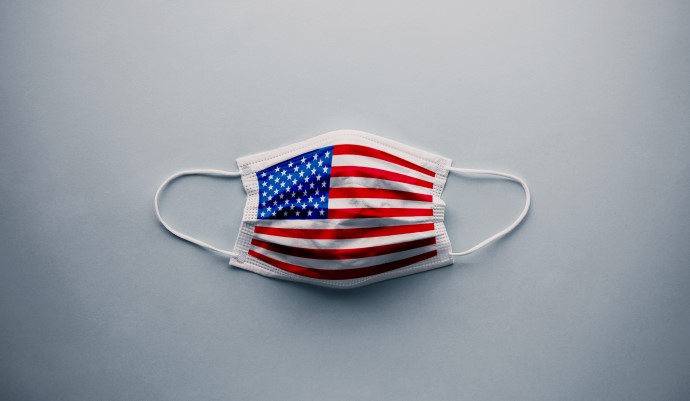US Healthcare Spending Hit High of $3.8T After Rising 4.6% in 2019
New data from CMS shows that national healthcare spending continued to increase at a quick pace in 2019, but that trend is likely to change in 2020.

Source: Getty Images
- National healthcare spending hit a total of $3.8 trillion in the year before COVID-19 hit, according to a new analysis from the Office of the Actuary at CMS.
The analysis published in Health Affairs yesterday showed that healthcare spending in the US increased by 4.6 percent in 2019, driven largely by growth in personal healthcare spending on hospital care and other clinical services.
Expenditures on hospital care increased by 6.2 percent, reaching a total of $1.2 trillion and accounting for nearly a third of national healthcare spending that year.
Meanwhile, spending on physician and clinical services increased by 4.6 percent to $772.1 billion, or 20 percent of total healthcare expenditures, and retail prescription drug spending increased by 5.7 percent to $369.7 billion, or 10 percent of total healthcare spending.
“Health care spending in 2019 increased at about the same rate as it had in 2018 and was similar to the average annual growth since 2016,” Anne Martin, an economist in the CMS Office of the Actuary and first author of the Health Affairs article, said in an emailed press release.
“This relative stability in health care spending growth over the last four years preceded the COVID-19 pandemic in 2020. The full impact of the pandemic on the health care sector is still not known, but it will certainly have profound consequences on the provision and consumption of health care in 2020 and perhaps beyond,” Martin stated.
Healthcare providers have been battling COVID-19 for nearly the entirety of 2020 and have already reported significant changes in utilization and expenses as a result of the pandemic.
Hospitals have reported nearly a 20 percent decrease in inpatient volume, on average, and an average 34 percent decline in outpatient volume. This, and higher-than-usual supply expenses and other pandemic-related costs, will likely lead to a $323 billion loss for hospitals and health systems across the country, the American Hospital Association (AHA) says.
Spending on hospital care typically drives the growth in total spending on healthcare in the US. In 2018, for example, hospital care spending represented $1.2 trillion out of the total $3.6 trillion spent on healthcare that year.
Hospital care spending increased more in 2019, with use and intensity of goods and services rising by 4.2 percent compared to just 1.8 percent in 2018.
On the other hand, hospital prices also grew by just 2.0 percent in 2019 versus 2.4 percent in 2018.
Spending on prescription drugs and physician and clinical services also grew at faster paces in 2019, with non-price factors (i.e., use and intensity of goods and services) being the largest contributor to the acceleration.
Notably, retail prescription drug prices decreased by 0.4 percent in 2019, as price growth for brand-name drugs slowed and declined for generic drugs. Prices for physician and clinical services also held steady, CMS actuaries reported.
In terms of payers, spending on private health insurance represented the largest share of national healthcare spending at $1.2 trillion, or 31 percent of total healthcare expenditures in 2019.
However, Medicare spending grew the fastest at 6.7 percent to reach $799.4 billion, or 21 percent of total healthcare spending. Spending growth accelerated largely because of steady enrollment growth (2.6 percent in both 2018 and 2019) and slightly faster growth in per enrollee expenditures (4.0 percent).
Medicaid expenditures grew by 2.9 percent to reach $613.5 billion. Spending on the program represented 16 percent of total healthcare spending.
Overall though, CMS actuaries observed a net decline in the cost of health insurance because of the suspension of the health insurance tax last year.
Household healthcare spending also declined slightly to 4.5 percent growth in 2019 from 4.8 percent growth in 2018, the actuaries note. Still, out-of-pocket spending and contributions to employer-sponsored health plan premiums represented nearly two-thirds of household spending last year.
